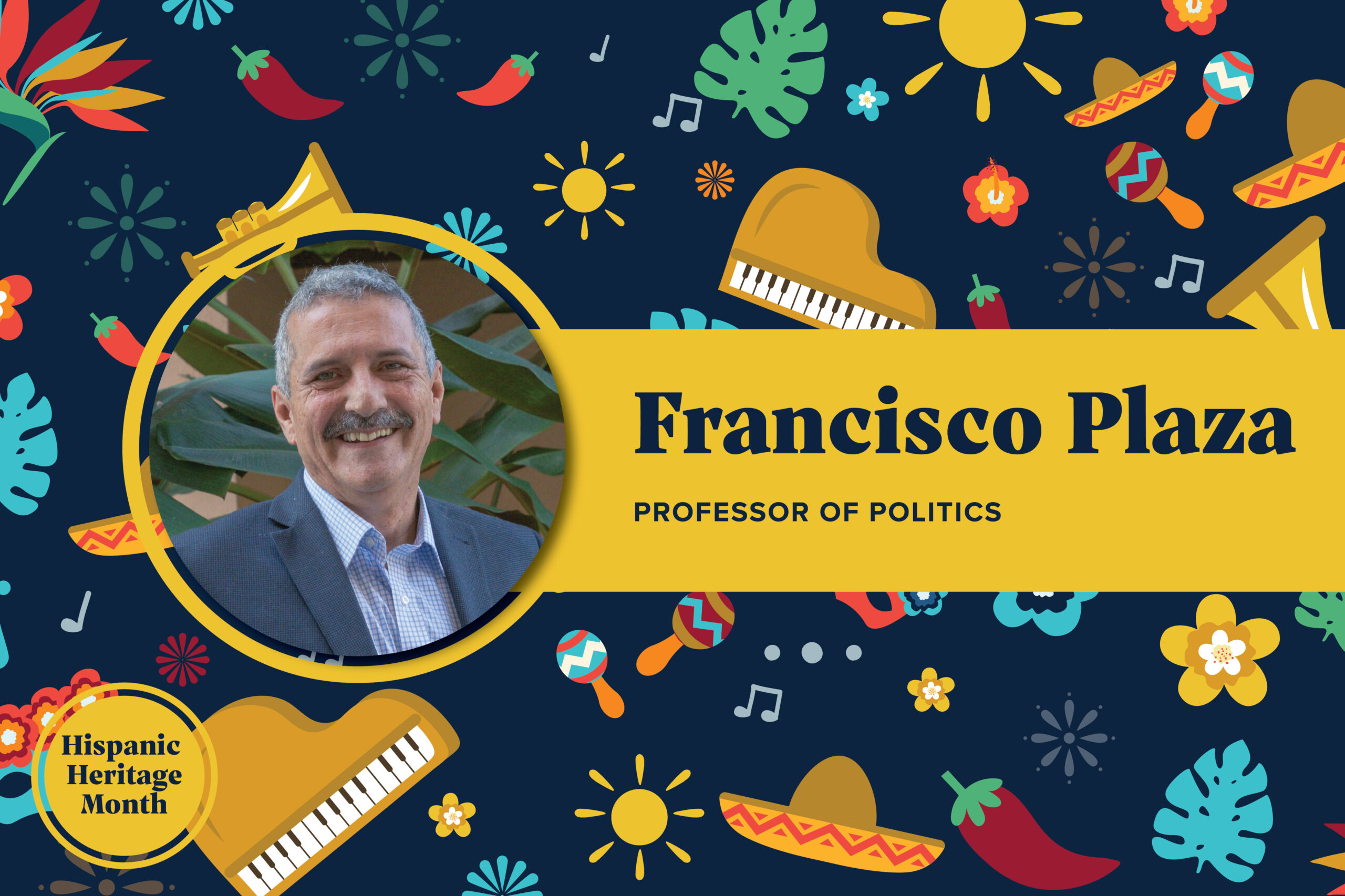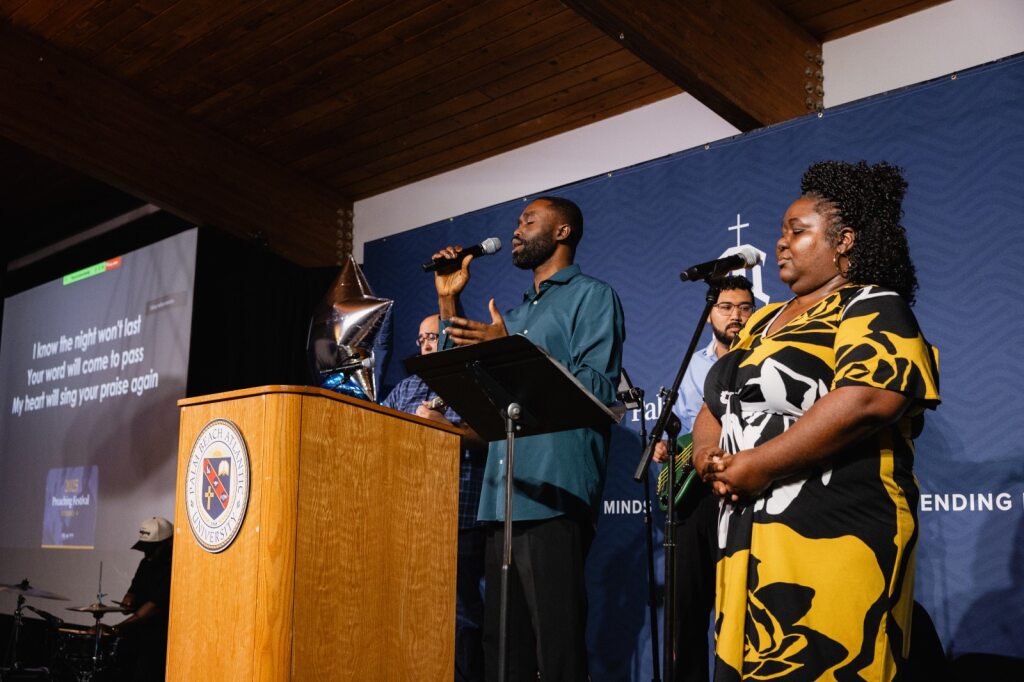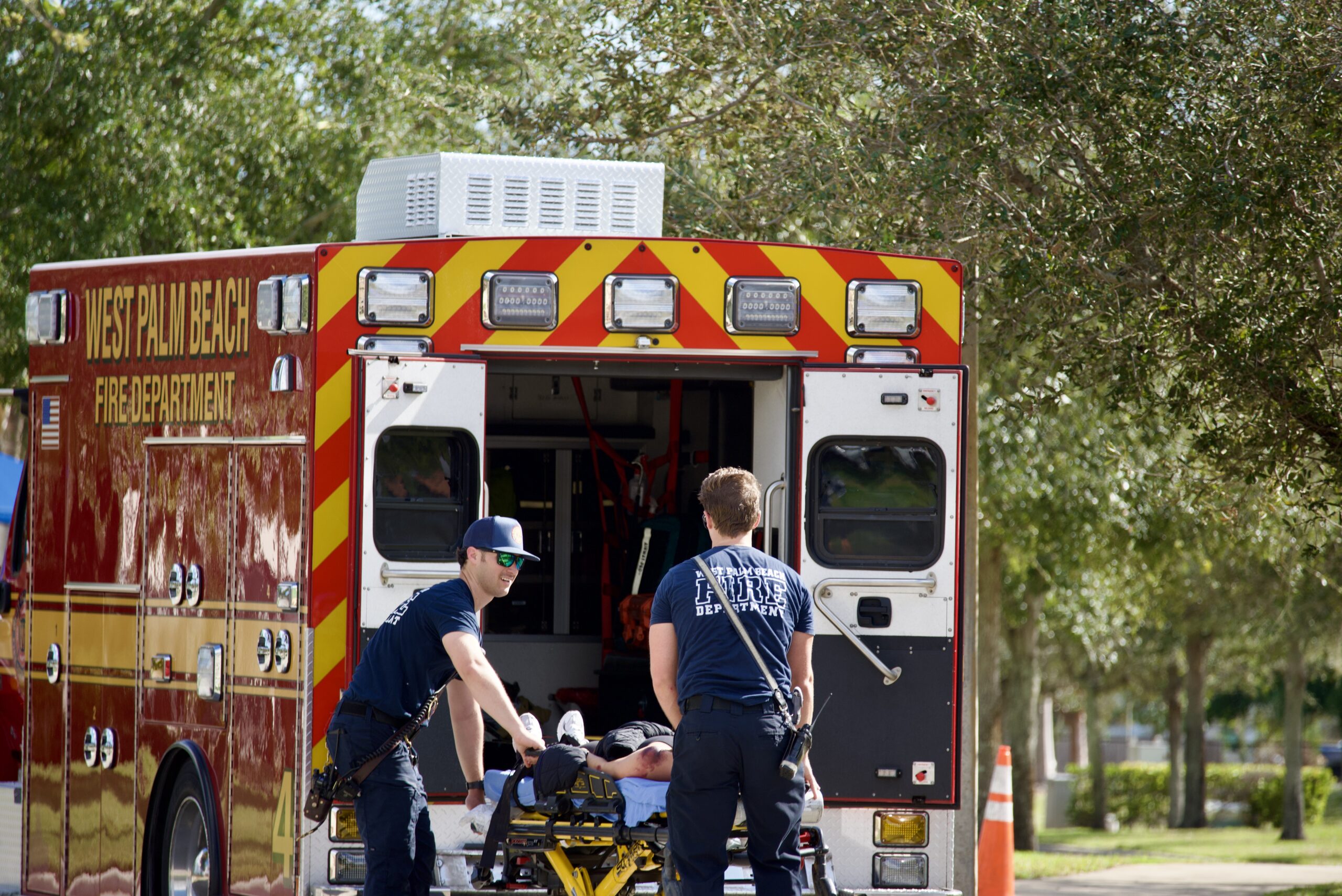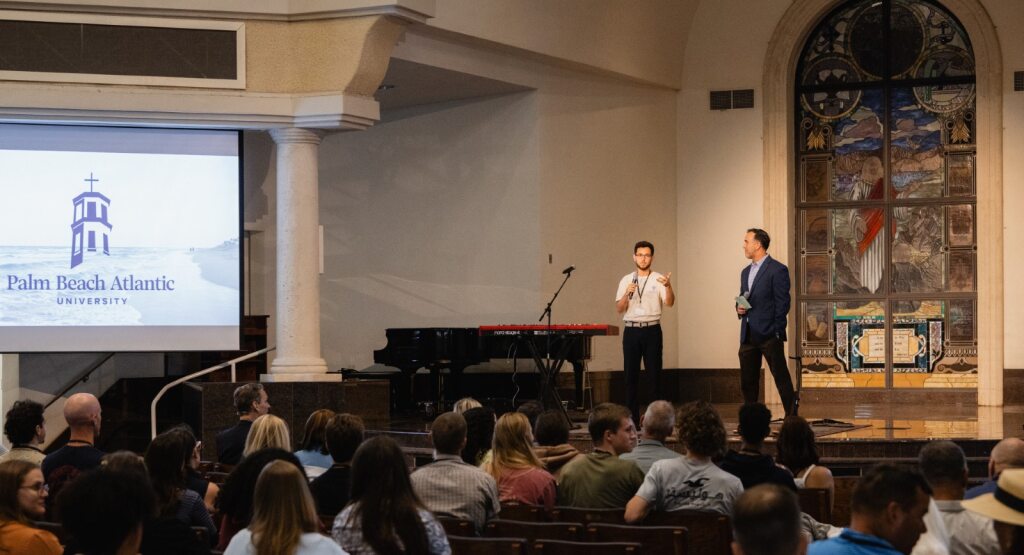Dr. Francisco Plaza, a professor at Palm Beach Atlantic University’s (PBA) politics department, calls the vibrant city of Caracas, Venezuela’s capital his hometown. Venezuela’s rich cultural influences and complicated history have shaped Plaza’s personality, profession and even his view of America.
Plaza’s Venezuelan lineage can be traced back to the 16th century when his family emigrated from Spain. His ancestor, Ambrosio Plaza, was a general born in Caracas who would fight and ultimately die for Venezuela’s independence from Spain in 1821. Plaza’s father and uncle continued the family tradition of shaping the country by becoming two of the most notable composers of the 20th century. A different uncle, who was a Jesuit priest, founded Venezuela’s Catholic University.
Venezuelan Traditions and Customs
Plaza’s father always prioritized educating his son about the significance of Venezuela’s customs and past. Plaza grew up celebrating many different traditions, especially around the holidays. For example, at Christmas, he would eat hallacas, an indigenous Venezuelan dish consisting of meat stuffed into a corn dough. For New Year’s Eve, his family packed suitcases to walk across the street at midnight. This symbolized wanting to travel to somewhere new in the upcoming year. Another tradition included singing “Esta Noche tan Preciosa,” which translates to “This Night is so Beautiful” and is a lengthy song to wish someone a happy birthday.
While Venezuela has many reasons to celebrate its heritage, its current political and socioeconomic environment also raise concerns. In 1999, Hugo Chavez became president and implemented extreme socialism in the nation’s government. Chavez quickly transformed the country through harsh, authoritative rule.
“We lost our freedom in 1999 practically overnight. This experience taught me that institutions and laws are not enough to protect freedom,” Plaza said.
Plaza believes this political regime has attempted to destroy his home country’s material state and the spirit of its citizens for the past 25 years. The devastating effects of the country’s government are evident, with over half of the country’s citizens living in extreme poverty.
While it was heartbreaking to watch the country he loved fall apart, Plaza learned an important lesson from his experience: understanding one must be proactive in protecting freedom. He has taught this lesson in his PBA classes for the past nineteen years. He hopes students can see past Venezuela’s current political state and appreciate all the good aspects of the culture and people that came before and remain to this day.
Cultural Treasures and Cheerful People
To Plaza, Hispanic Heritage is an opportunity to explore the uniqueness of all Latin countries and the moral foundations and traits they share. He encourages others to seek out the cultural treasures of Venezuela and appreciate how cheerful and forgiving the people are, even in dire circumstances. He hopes people can overcome misconceptions and learn more about the richness of Venezuelan and Latin culture.
“Hispanic culture is showcased at its best through its very rich cultural tradition in the arts, literature, and music. Sadly, Hispanic culture is rather often portrayed and reduced to the vulgar and shallow artistic expressions that have become popular in recent years,” Plaza said.
PBA’s College of the Arts is pleased to announce the 15th Annual Hispanic Heritage Festival to be held on October 10-13, 2024, in the Vera Lea Rinker Music and Fine Arts Building on our campus in West Palm Beach, Florida. To learn more, click here.



